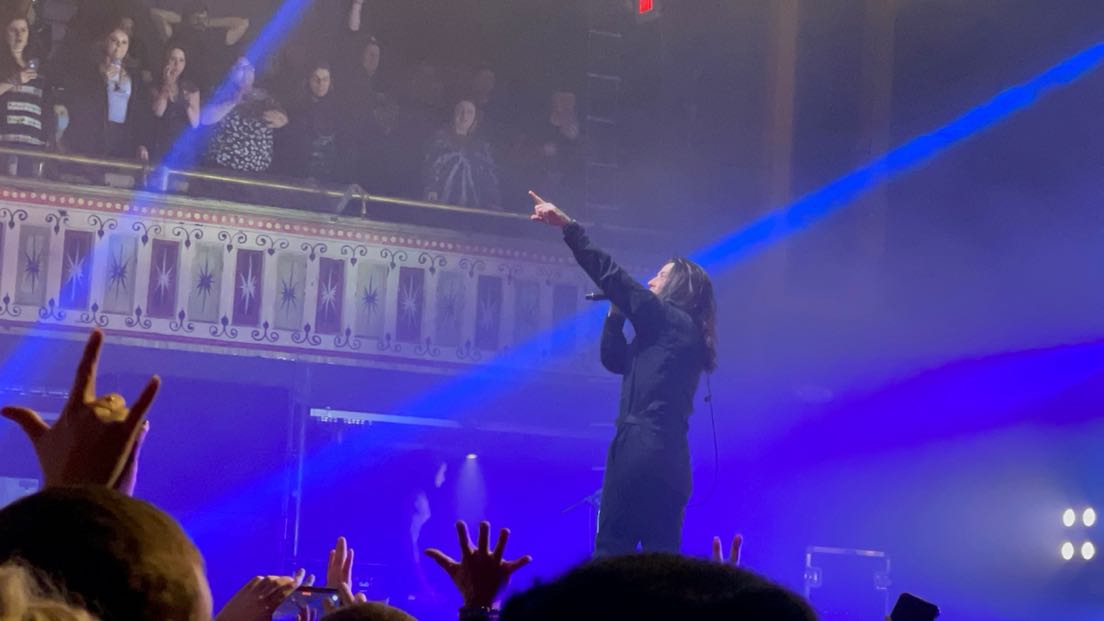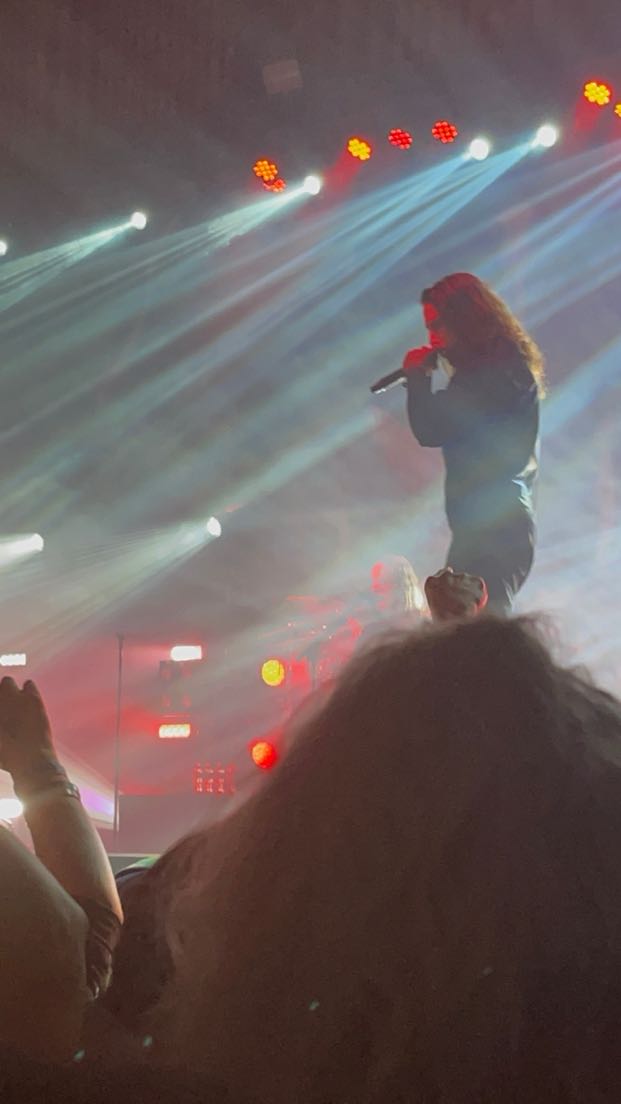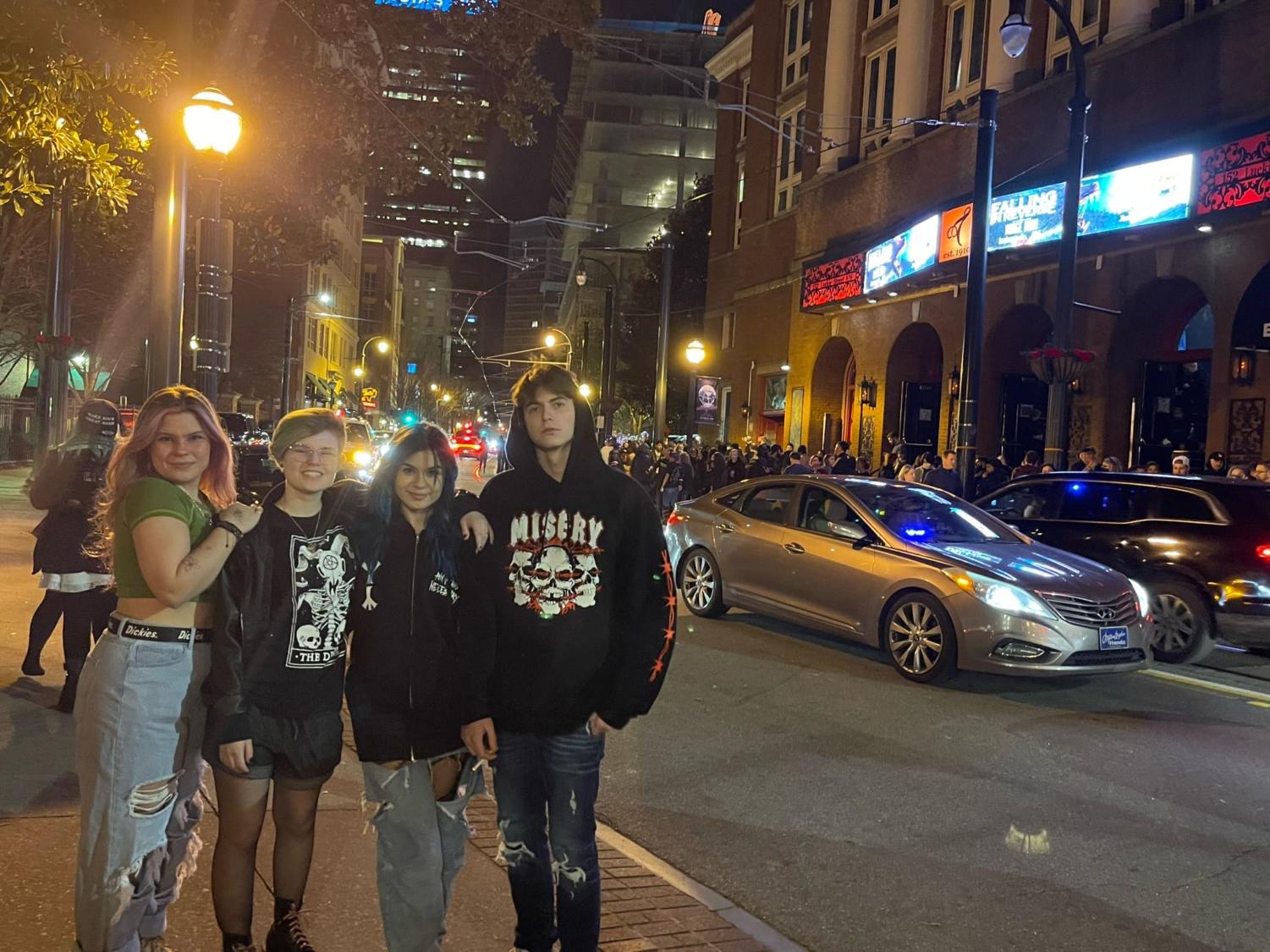Falling in Reverse’s Single “Zombified”: Behind the Meaning and Controversy
On Jan. 5, Platinum-selling rock band Falling in Reverse kicked off the New Year by dropping their latest single “Zombified.” Gaining over 6,326,930 streams on Spotify in just three weeks, the band portrayed the toxicity of cancel culture and the effects it has on people’s lives.
“Zombified’s” music video follows the Falling in Reverse crew amid a horror film invasion, fending off a dystopian world inhabited by zombies, aliens and giant monsters. But behind this action-packed cinematic musical piece, there is a deeper meaning, which is apparent throughout scenes in the video.
The track and its music video claps back at cancel culture, using zombies as a metaphor to represent the media and its masses. Falling in Reverse aims to make listeners question how they receive their information and realize that misinformation and cancel culture is ruining society.
In an interview with AntiMusic, vocalist Ronnie Radke said, “I wrote ‘Zombified’ about how sensitive society has gotten, in my opinion. I think we all need to learn to laugh a little more.”
Radke also spoke with Loudwire, discussing what inspired the track. In addition, he hosted a live stream, debunking any beliefs of “Zombified” being about him.
In his Twitch live stream, he stated, “Trust me. I did expect negative reactions to the song, and I still put it out. When somebody says, ‘this song sucks!,’ I’m like ‘no, you just don’t like it because it’s me.’ If it were Bring Me The Horizon or anybody else, you would be in love. But you don’t like it because it’s me.” Radke continued, “[it’s] the lyrics you think are stupid because it’s directed right at you. You probably feel embarrassed [of your behavior].”
Radke then explained that the scenes relating to him were “just [him] adding a funny thing to it,” and that “it’s not about [him], it’s about the generalization of the world, and the state [it’s] in right now.” He added, “There is an intentional cheesiness to this song and video. It’s very obvious.”
Deepening the discussion, Radke commented, “There is just so much misinformation on the internet. There is a lot of misinformation about me and stories written about me that aren’t true. You can’t blame a [teenager] who read that I killed somebody on the internet [and believed it]. You have to blame the people who wrote it. In general, as a whole, people need to educate themselves.”
He concluded the live stream with, “I don’t even care about the politics anymore. I care about my fans enjoying [the song].”
Upon hearing “Zombified,” listeners took their opinions to TikTok. Essentially, members of cancel culture were trying to cancel a song about cancel culture. Among these reviews, users started making up rumors about Radke by bringing up his past. Radke then created a TikTok account, addressing these accusations.
The rumors about the frontman ranged anywhere from him abusing fans to him murdering someone. “None of [the accusations/rumors] are accurate,” Radke stated.
“I didn’t go to prison for murder. I went to fight somebody, and they had a gun. They shot at me, so my friend shot and killed them. My friend [was pardoned with] self-defense. No one got arrested. I am the only one who got a charge months later for having brass knuckles on me. I never hit anybody. I shouldn’t have shown up with brass knuckles to a fight. I didn’t murder anybody,” Radke explained in one of his TikToks.
In 2008, Radke was sent to prison for 2 ½ years for missing an appointment with his parole officer. This occurred after the fight.
Addressing the fan abuse, Radke said, “I threw some mic stands into the crowd. I injured somebody. Stupid [of me], right? She got cut [open], had some stitches. She’s not mad. She got $800,000 for it [from me]. She’s not mad about it; you guys are mad.”
Personally, I believe the message of “Zombified” is solid. The track gives an accurate representation of what Gen Z has succumbed to. It is admirable that the band is calling out cancel culture and not being afraid to do so. It seems as if people are not allowed to grow as individuals because society will always hold something they said or did in the past against them. Cancel culture does not acknowledge that someone has bettered themselves or has changed; its members continue to latch onto past mistakes. They do this in an attempt to ruin that individual’s career (for no good reason).
Senior Honestee Wallis and her sibling, junior, Jae Wallis, have been listening to Falling in Reverse for “about a year and a half,” and agrees with “Zombified’s” message.
When asked about her interpretation of the track, Honestee Wallis stated, “The message is relevant to the world today. I think he [Radke] did a good job calling out cancel culture because, in my opinion, people are trying to get everyone to hate each other, and Ronnie believes that too.”
On the other hand, Jae Wallis expressed, “It’s not my favorite song, but it’s not bad. Cancel culture can obviously go way too far, as anything can, but I do think people should be held responsible for their actions if they haven’t yet apologized or addressed them.”
The Wallis siblings attended “Live From The Unknown: The Tour” on Jan. 13 at the Tabernacle. When asked about the performance, Jae Wallis explained, “The concert was fun! The second to last song they played was ‘Zombified.’ He [Radke] went off for a bit about cancel culture, but it was hard to hear. Everyone was just so loud and excited that he and the band were back on tour. Not to mention, they were anticipating the last two songs [of the night].”
Honestee Wallis added, “They actually played ‘Zombified’ live for the first time when we saw them. Ronnie was amazed that everyone was screaming the lyrics and knew the song when it had just come out [the week before]. The energy was great. There were long-term Falling in Reverse fans, kids with their parents and average ‘alt’ teens.” She concluded, “It was pretty cool to see the diverse range of people who came out to the show.”
Falling in Reverse has released an abundance of new singles since their last album, “Coming Home,” in 2017. Whether they are new or remasters of older songs, it is evident that the band has been experimenting with new sounds, topics and genres. Both Wallis’ agreed that they “look forward to all the new music” and are “curious [to see] what Falling in Reverse will do for this upcoming EP.”
With “Zombified,” Falling in Reverse built an incredibly catchy chorus that takes permanent residence inside the brain. The band did an outstanding job portraying cancel culture, and how it affects people in the public eye. “Zombified” will appear in the upcoming EP, “Neon Zombie,“ which will be released “soon,” according to the band’s social media. With the controversy and topic of this one single, it will be interesting to see what other songs will be featured in “Neon Zombie.”

Hello! My name is Cynda Allen. I am a senior this year, and this is my fourth & final year writing for the Raider Wire. I love reading, writing,...




















